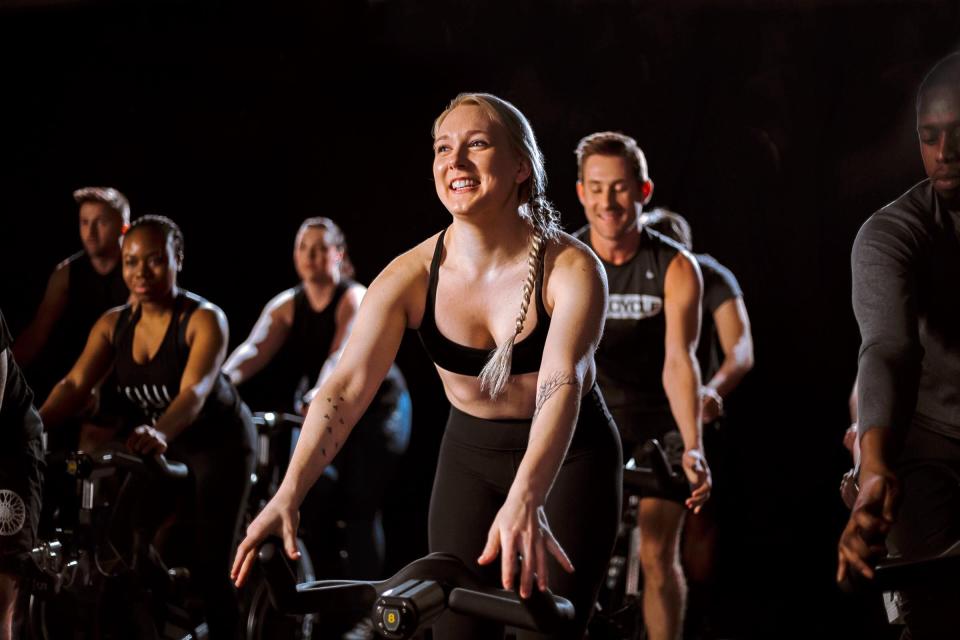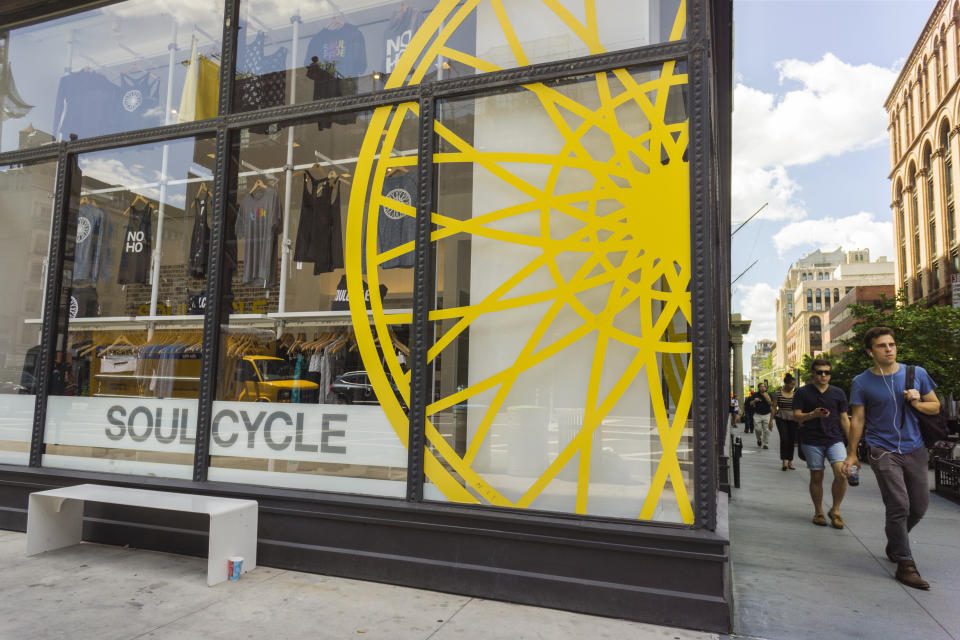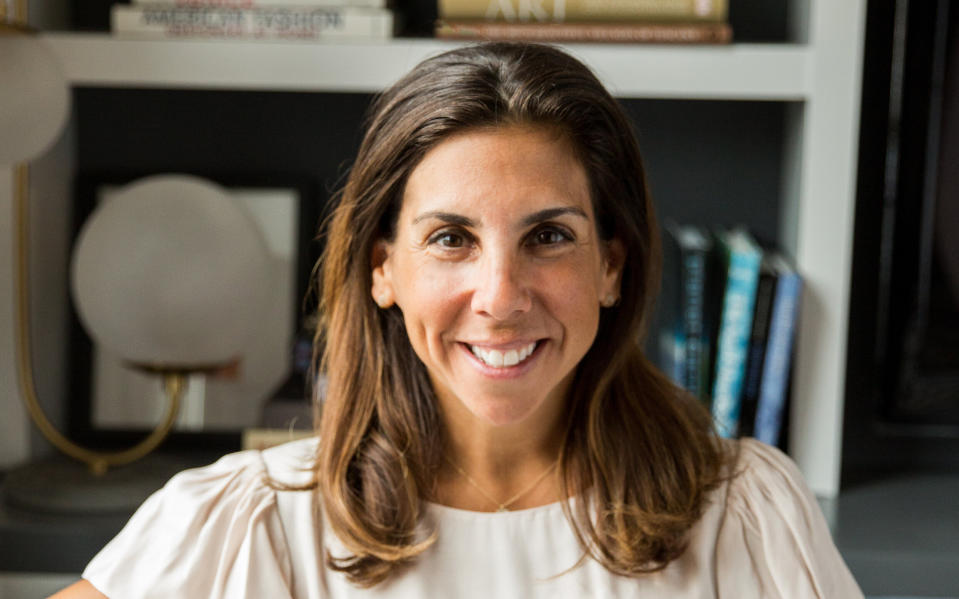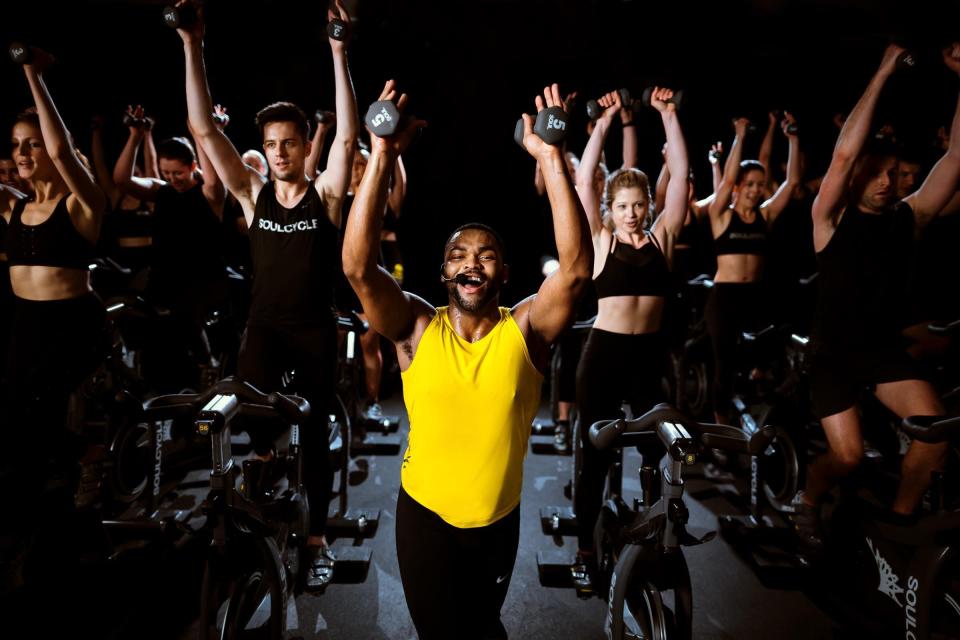SoulCycle CEO 'very bullish' on London as first UK studio opens

What is SoulCycle? Is it an exercise class? A lifestyle? A religion? A cult?
“You’ve got 60 people moving to the rhythm of the music in the candle light,” Melanie Whelan, SoulCycle’s CEO, told Yahoo Finance UK. “You lose yourself to the rhythm of the music and you lose yourself to the beat and you find yourself in that darkness. What happens then is you come out into the light, you’ve got 60 people who’ve just had this shared experience and 60 people waiting to go in.”
At its most basic level, SoulCycle is a 45-minute exercise bike class that sells its own line of clothes and merchandise. Sixty people at a time spend the majority of an hour pedalling on stationary bikes in a dark room to pumping music.
But something about the class and the brand has connected with people on a deeper level. The New York-based company has attracted a cult following in the US. Michelle Obama is a fan and Oprah celebrated her 60th birthday with a private class. A friend from New York recalled a former roommate going multiple times a day.
“People come for the workout because it’s physical, musical, emotional, and inspirational,” Whelan said. “But what makes us different is we are a community business that really is about driving personal breakthrough on the bike in the room, and then also connection in the lobbies of the studios afterwards.”

Now SoulCycle is coming to the UK, its first market outside of North America. The company’s first UK studio opens in London’s Soho in a few weeks, with classes costing £24 a go. Can the company replicate its emotion-fuelled success in the country that invented the stiff upper lip?
“We’ve been watching this market for a couple of years and we have listened to the large group of people who have been advocating for us to bring SoulCycle [here],” Whelan said.
SoulCycle was founded in 2006 in Manhattan by two friends and has grown steadily over the last 13 years. Today it has 92 studios across North America. The company is private, so financials are not available, but a since-abandoned effort to list it on the stock market in 2015 valued the business at around $900m. Whelan said the company is profitable.
The business’ rapid rise has coincided with global trends like wellness, athleisure wear, and “community” focused businesses in the mould of WeWork. It’s hard to separate to what extent SoulCycle contributed to these trends versus benefitting from them.

“I think, if you look at WeWork or other brands that are really capitalising on this experiential economy that’s evolved in the last few years, it’s really been around that macro trend of social isolation, in my opinion,” Whelan said.
“We’ve become tethered to technology and what that’s doing is drive social isolation and ultimately I think generally unhappiness and loneliness in a lot of the population, especially in urban markets that used to be more connected.”
SoulCycle is an antidote to all this, she believes.
“We’re now engaging much more through gaming, texting, through social media, in a way that’s leaving people socially isolated. If you look at companies like SoulCycle, what we create is points of in-real-life connection.”
Whelan, who joined the business in 2012 from luxury gym group Equinox, believes this is SoulCycle’s real “alchemy” — the fact that it brings people together.
“To be in one of those studios and to hear: You changed my life, I met my husband here, these are my best friends — it’s a wonderful place to work,” she said.

Of course, not everyone is a fan. A 2015 Mashable article described SoulCycle classes as full of “very thin people with a lot of money to spend and desiring the sense of confidence and belonging that comes from motivational sayings, candles, suffering loudly in a darkened room full of fellow travellers.”
The classes also face fierce competition. Psycle, a very similar spin brand, launched in London in 2014. Upmarket at-home exercise bike brand Pelaton is pushing into the UK market. And that’s before you even consider the host of other upmarket exercise classes on offer across London.
Whelan is undeterred.
“We’re very bullish on the opportunities for the brand here,” she said. “We’re not talking about how many we’ll have this year but I will say that I think London presents incredible market dynamics not dissimilar from New York where we have 22 studios.”
As for the haters who think the SoulCycle is just for the rich and insecure, Whelan says everyone from teens to 80-year-olds get on the bikes. The company has also been pushing into US markets a little less obvious than New York or LA — places like Dallas or Atlanta.
Ultimately, Whelan thinks doubters need to try the class before casting judgment.
“This experience is unlike anything else, it is joyful and social and it gives you a way to connect with yourself and with others,” she said. “The best way for you to understand that is just to come and try a class and let the experience speak for itself. Just get your butt on a bike.”

 Yahoo Finance
Yahoo Finance 